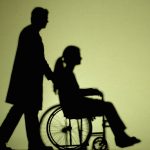But, I Don’t Want to Have a Female Brain Attack
 There are no guarantees in life, but you can reduce the chances of having a female brain attack by following this easy four step KCKC plan.
There are no guarantees in life, but you can reduce the chances of having a female brain attack by following this easy four step KCKC plan.
Know the risk factors that precipitate a brain attack/stroke
Compare your past and present lifestyle habits against the risk factors
Know your family history of stroke events
Consult with a health professional knowledgeable about brain attacks/strokes about risk factors that may affect you and what health and lifestyle changes may be appropriate for you.
The Big Five Risk Factors Associated with a Brain Attack/Stroke
- History of coronary heart disease/heart attacks
- High blood pressure
- High cholesterol
- Prior mini stroke event
- Family history of stroke incidents
Other related factors
- Atrial fibrillation (heart rhythm disorder)
- Autoimmune diseases (Diabetes mellitus, Lupus)
- Alcohol abuse
- Illicit drug use (especially, cocaine, amphetamines, heroin)
- Clotting blood disorders
- Sickle cell disease
- Smoking or exposure to second hand smoke
- Poor diet and poor health habits
- Inactive lifestyle
- Increased abdominal fat and conditions of obesity
The Big Five Risk Factors for Women
- Migraine headaches – especially when accompanied by aura sensations; women who use birth control, smoke and have migraines experience a higher incidence
- Long term use of hormones – birth control pills for women over age 35 may increase risk; hormone replacement: estrogen or estrogen plus progestin increases risk slightly for postmenopausal women
- Pregnancy – risk factor increases 2.4 times in the weeks following birth
- Family history- risk factor doubles for women with immediate family members who have had a stroke
- Sleep excess -unknown reasons where postmenopausal women who sleep 8-9 hours/night
[source: 5 factors that increase women’s stroke risk by Geri K. Metzger, staff writer, My OptumHealth.com Sept.8, 2009]
Consult with your health professional for what is right for you, but the following are general health recommendations.
- Reduce salt and fat in diet
- Have a stress reduction plan
- Increase healthy foods, especially fruits and vegetables
- Exercise
- Stop smoking
- Have a physical examination
- Reevaluate birth control or hormone replacement options
According to Dr. Steven J. Kittner, M.D. director of the Maryland Stroke Center at the University of Maryland School of Medicine, being able to reduce any one of the risk factors can lower the chances of a brain attack/stroke. However, risk factors become cumulative when no personal action is taken.
The information provided above is for informational purposes only. Please consult with your health care provider before making any decision or changes.
by Joyce Hansen